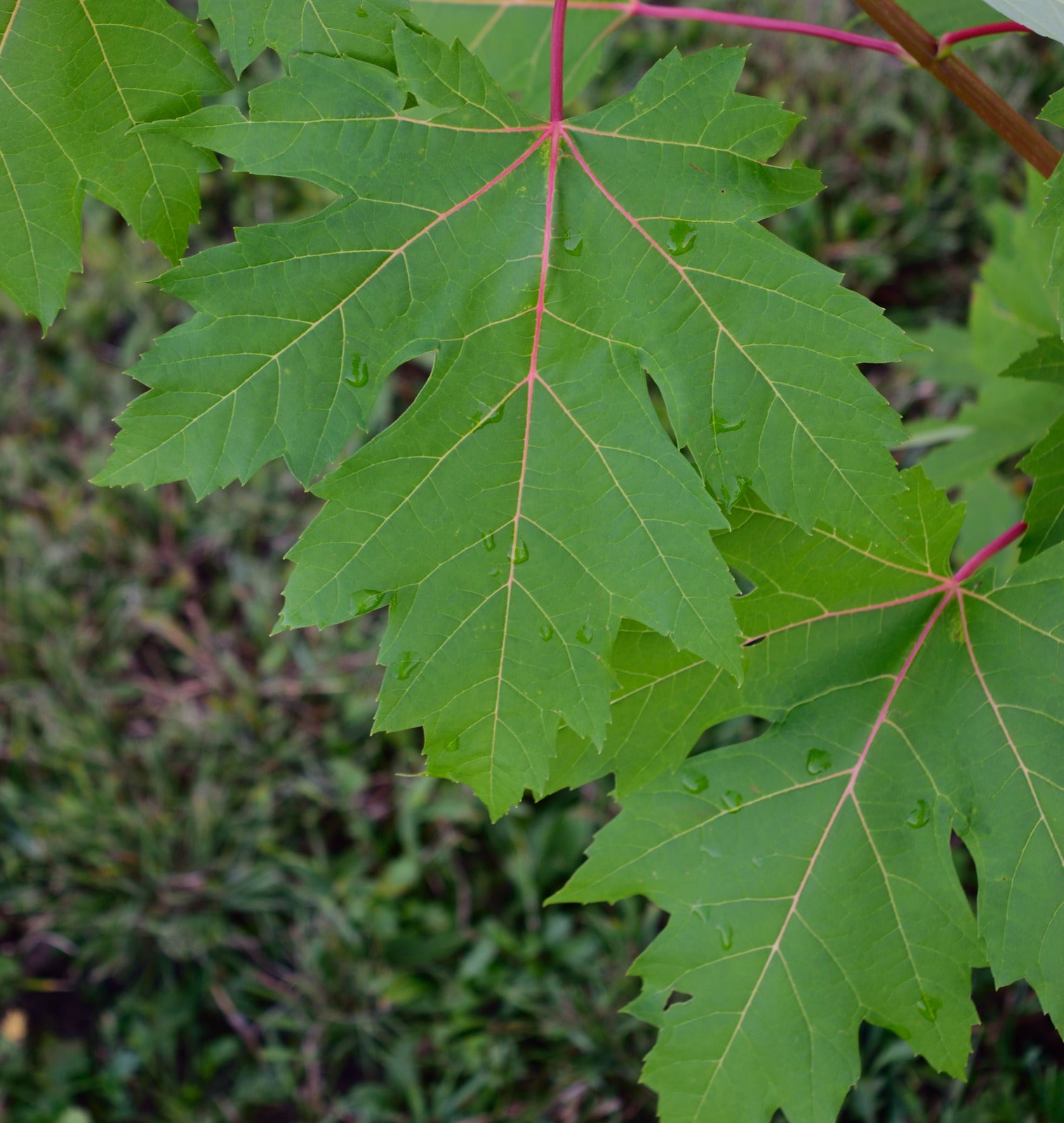ACER SACCHARINUM / SILVER MAPLE
- Regular price
-
$39.99 CAD - Regular price
-
- Sale price
-
$39.99 CAD
Couldn't load pickup availability
Delivery Fees
Delivery Policy
Enjoy FREE delivery on all orders over $149!
For orders between $80 and $149, a $18.99 delivery fee will apply.
Orders under $80 will be prompted to add more items to your cart.
ACER SACCHARINUM / SILVER MAPLE
Fast-Growing Shade Tree with Graceful, Silvery Foliage
Acer saccharinum, or Silver Maple, is a large deciduous tree renowned for its rapid growth, elegant silvery leaves, and ability to thrive in a variety of environments. It is often chosen for its ability to quickly provide shade and its striking foliage, which creates a soft, shimmering effect in the wind. Silver Maple is an excellent choice for parks, large residential yards, and other spaces where a fast-growing shade tree is needed.
Why Choose Silver Maple?
- Rapid Growth: One of the fastest-growing maples, it can quickly provide shade and mature into a sizable tree.
- Graceful Silvery Foliage: The silver underside of the leaves gives a shimmering effect in the wind, adding beauty and interest.
- Drought Tolerant: Once established, Silver Maple is quite drought-tolerant, making it ideal for areas with inconsistent water supply.
- Wildlife Habitat: The tree supports a variety of birds and insects, adding to its ecological benefits.
Key Features:
- Distinctive Silvery Leaves: The leaves are bright green on top with a silver-white underside, creating a lovely contrast and shimmering effect.
- Fast Growth: Can grow up to 3 feet per year, reaching a mature height of 50–70 feet quickly.
- Adaptable to Moisture: Grows well in moist soils, making it perfect for planting near ponds, streams, or in low-lying areas.
- Fall Foliage: Offers a brilliant yellow to orange fall color, adding seasonal interest.
Specifications:
- Plant Size: 50–70 feet tall, 40–60 feet wide.
- Hardiness: USDA Zones 3–9.
- Sunlight: Full sun to partial shade.
- Soil Requirements: Prefers moist, well-drained soils but can tolerate a variety of soil types.
Ideal Uses:
- Shade Tree: Excellent for providing shade in larger residential yards, parks, or street plantings.
- Street Tree: With its rapid growth and tall stature, Silver Maple is ideal for street plantings where a tall, fast-growing tree is needed.
- Wetland Areas: Performs well in areas with periodic flooding or near streams and ponds due to its ability to handle moist conditions.
While Silver Maple is fast-growing and attractive, it does require regular maintenance due to its tendency to develop weak wood and surface roots. However, its ability to thrive in a range of conditions makes it a versatile and valuable tree in many landscape settings.

Care Instructions
Different plants have different watering needs. Check the soil moisture by inserting your finger about an inch into the soil. If it feels dry, water the plant until the water drains from the bottom of the pot. Avoid overwatering, as it can lead to root rot.


ACER SACCHARINUM / SILVER MAPLE
- Regular price
-
$39.99 CAD - Regular price
-
- Sale price
-
$39.99 CAD


